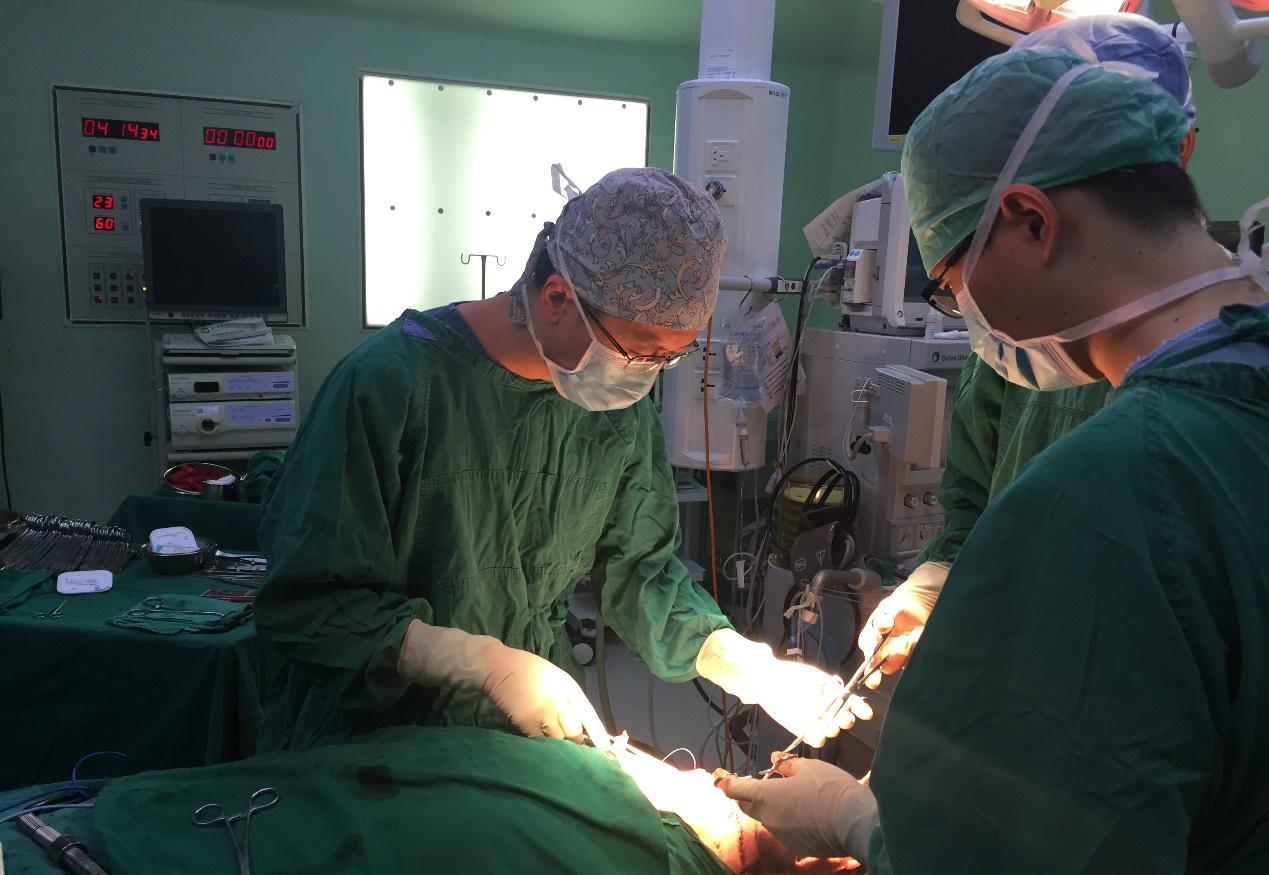This article talks about my requirements for my own practice of medicine.
Since 2006, he has been working in the clinical frontline and has learned a lot from our two directors of oral and maxillofacial surgery, Professor Chen Weiliang and Professor Li Jinsong, for more than 10 years. During this period, I went to the Department of Oncology surgery of Harvard University Massachusetts General Hospital, the top three hospitals in the United States for postdoctoral training, coincidentally, the hospital where I work now, Sun Yat-sen Memorial Hospital of Sun Yat-sen University, is the earliest western hospital in China, built in 1835, and Harvard University Massachusetts General Hospital is also the oldest hospital in the United States, built in 1811, very pleased to be able to engage in this career in such a hospital with a long history.
After more than ten years of work, I have made the following requirements for myself:
<h1>1, remember not to be conceited:</h1>
As a doctor, the crowd we face is the patient, the life is saved, and I know clearly that the individual's thinking has limitations, so I can never be conceited about what I am asking of myself. Each case is thoroughly analyzed and all tests are performed before surgery. Difficult cases should be actively organized for discussion, and even multidisciplinary discussion (MDT) should be carried out to formulate a reasonable and comprehensive treatment plan for the patient. This not only contributes to their continuous improvement and improvement, but also maximizes the benefits for patients.
<h1>2, do tumor surgery must have a "cleaning habit", but also need to be unashamed:</h1>
Surgical operations must be refined, as I specifically mentioned in the article, remember not to treat surgery as a task to complete, if completed as a task, it may affect the attitude and sense of responsibility towards surgery, so we should pay more attention to the amount of bleeding in surgery, the clarity and cleanliness of the anatomical level. Because we are facing patients, in the process of surgery, such as the retention of nerves need to be fine and gentle care; for the clearance of cervical lymph, even the quadrant abdomen, there is no residue of a small grain of fat connective tissue; vascular anastomosis, need to confirm the suture quality of each stitch 100% of the quality of the suture and the permeability of blood vessels, I also asked my students, do tumors must have "cleanliness", must be done without shame; and surgical surgery must have unpredictable possible complications (especially some advanced cancers), Once it appears, we must take responsibility and do our best to save lives and promote the recovery of patients.

(Surgery still going on at 4 a.m.)
<h1>3. Continuously improve professional quality:</h1>
Tumors must be comprehensive treatment, I was in The Massachusetts General Hospital of Harvard University for two years, participated in various lectures in the hospital, and I am well aware of the difference in tumor prognosis between China and the United States, of which the role of standardized treatment and comprehensive treatment is particularly obvious. For surgeons, for most oral cancer treatment, surgery is fundamental, but we can not be overconfident, ignore the follow-up treatment after surgery, the treatment of oral cancer must have the concept of comprehensive treatment; after surgery, it should be supplemented by radiotherapy and chemotherapy.
In addition, as contemporary surgeons, our thinking cannot be limited to traditional surgery and radiotherapy and chemotherapy, we also need to understand new technologies such as genetic testing, targeted therapy, and immunotherapy. This puts forward higher requirements for our younger generation, which requires us to continuously improve our professional qualities; in addition to specializing in our own skills in this field, we also need to learn the significance of comprehensive treatment such as TMB, MSI, HLA classification, etc. The continuous emergence of new technologies, new treatments and new drugs requires us to continue to learn, which is the requirement of the times.
(Previously published papers)
<h1>4. Innovative spirit:</h1>
This includes both clinical and basic research; the two main features of contemporary surgery include minimally invasive and precise. Clinical innovations, such as the repair of tongue cancer, have not really systematically studied how to reconstruct the morphology of the tongue according to its anatomy for decades, we answered this question for the first time based on anatomy, invented THE FIPELS technology, and also carried out the first endoscopic assisted transcranial groove parotid gland surgery and cervical lymphatic dissection of a single submandibular small incision in the world; these are all original innovations.
Innovation is the soul of scientific research, and the continuous expansion of basic research is the source of improving clinical comprehensive treatment, which is also the only way for high-level hospitals in the United States to come out. For example, how to effectively predict the effectiveness of immunotherapy, we need to study, I now have my own research team, and we are actively doing some work in this regard. Therefore, it is expected that through its continuous efforts, it will contribute to the contemporary maxillofacial surgery/maxillofacial tumors.
<h1>5. Benevolence:</h1>
I try my best to help everyone around me, and for medical problems, whether it is a patient, or a patient's family or friends, I will patiently answer them when I have time, or provide them with reasonable medical advice. It was very gratifying that many of my patients would later be very good friends of mine. I think it's a happy thing to help people, and today I do this to him/her, which may affect him/her to help others, and I think this is a way for the ego to spread positive energy.
Thank you!!!
Welcome to follow! If you have any related disease questions, you are also welcome to consult!
<h1>About my personal introduction :</h1>
Learn more